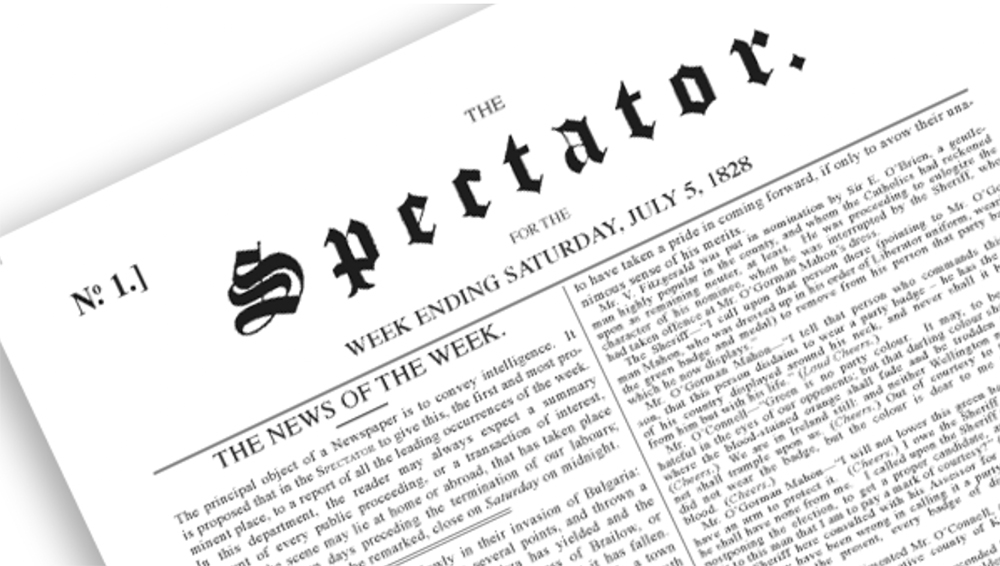These are jittery times in Zhongzheng, Taiwan’s Westminster. The island’s most important supporter, the United States, is now led by a man who resents, rather than is grateful for, the island’s enormous high-tech exports to the US. A few commentators wonder out loud whether Taiwan has become too economically dependent on America. There’s another large economy nearby that would happily boost ties.
Then there’s the military drills. The two Chinese characters for ‘Liberation’ have dominated the front pages here recently: some in reference to Trump’s tariffs bonanza, others referring to two days of surprise live-fire exercises by the People’s Liberation Army around the island. The median line in the Taiwan Strait, which both sides once tacitly agreed not to cross, has been confined to history in the last three years by repeated Chinese naval incursions. In the most recent drills, apparently a belated response to President Lai’s designation of Beijing as a ‘foreign hostile force’ in a speech last month, the Shandong aircraft carrier was at one point just 24 nautical miles off Taiwan’s coast.
But policymakers’ worries are not limited to these kinds of external threats. The government frets that trust in Taiwan’s institutions – as well as the population’s willingness to fight, and other factors that add up to population resilience – are slowly eroding. The administration is pushing back, trying to enhance society’s resilience and cohesion. But in doing so, it is testing the limits of how liberal a democracy can reasonably remain in the face of deliberate attempts to divide and undermine it.
Perhaps the gravest threat is spying. According to Taiwan’s intelligence agency, 64 people were prosecuted last year in espionage cases related to China, triple the figure three years ago. It is a particular problem in the military: almost a quarter of those indicted were active military personal. In response, the government is working on legal amendments to allow military judges to handle cases in which active armed forces personnel are accused of offences such as rebellion and aiding the enemy. Military judges are highly controversial in Taiwan, which was ruled under martial law by the Kuomintang (KMT) dictatorship from 1949 to 1987. The opposition-controlled legislature is likely to block the move, decrying it as authoritarian. Ironically, the largest of the two opposition parties is the KMT.
Less serious than espionage but perhaps more impactful is the state of public discussion in Taiwan. In recent weeks, three Chinese residents in Taiwan have been ordered to leave for supposedly advocating unification with China by force. The three are women married to Taiwanese men, which grants them residency rights in Taiwan. Cross-Strait marriages are not uncommon: there are around 260,000 mainland Chinese spouse, as the official terminology refers to them, in Taiwan, out of a population of 23 million. Ninety-five per cent are women. In China’s boom years, many Taiwanese went to work in places like Shanghai, where there were plenty of jobs for Mandarin-speakers. Some met a significant other there that they then married, and brought to live with them back in Taiwan.
The three women had children in Taiwan, and talked on social media about living in Taiwan. They then strayed into politics. One of them, whose channel is called ‘Yaya in Taiwan’, has a video with the caption: ‘Think you can resist the mainland? You overestimate yourselves’. In another video, she says ‘if you don’t want peaceful unification, then we must have non-peaceful unification’. To be clear, there does not seem to be any evidence of the three women actually working for Beijing. Regardless, the Ministry of the Interior determined that they had posted content that threatened national stability and social stability, and revoked their residence permits.
Some Taiwanese, though appalled by this kind of content, think the government has gone too far. One criticism of the decision pointed out that there was no evidence that her statements actually sponsored or mobilised violence. On this line of thinking, if influencers actually helped the Chinese military infiltrate Taiwan, that would be a security threat. But talking about it is just speech, which should be protected. International conventions do allow for restrictions on speech that is ‘propaganda for war’. But the National Human Rights Commission has pointed out that Taiwan lacks clear legal norms to define what this means in practice.
The government defended its decision. Chiu Chui-cheng, head of the Mainland Affairs Council, says that Chinese residents of Taiwan are free to advocate the benefits of unification or mention ‘one country, two systems’. ‘We respect all that because it falls under the scope of freedom of speech. Advocating for unification by force and for war has nothing to do with freedom of speech’. But clearly some in government are listening to the criticisms. The MoJ announced that it would listen to public input on whether ‘advocating war’ should be made a crime before it proposes legislation.
In the face of external threats and efforts to undermine cohesion from within, liberal democracies are in a bind. Any restrictions on speech must be clearly justified; laws around speech must be as precise as possible. Efforts to build a ‘unified national will’ to defend democracy are, in principle, all well and good. In practice, if implemented clumsily, they risk being perceived as illiberal. In the end, that could be just as damaging to Taiwain’s institutions than any external force.








Comments